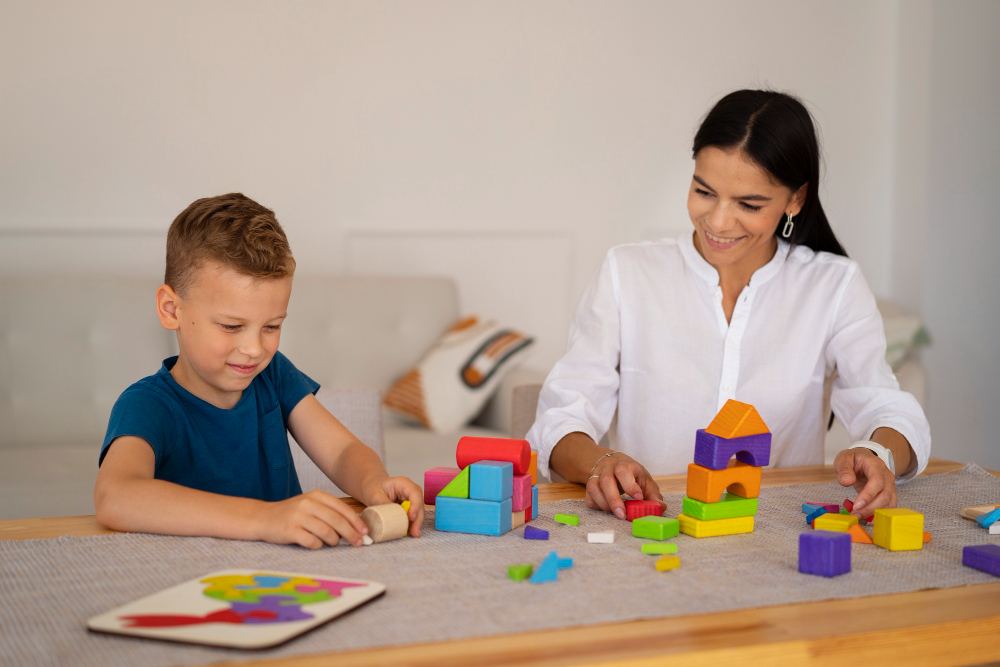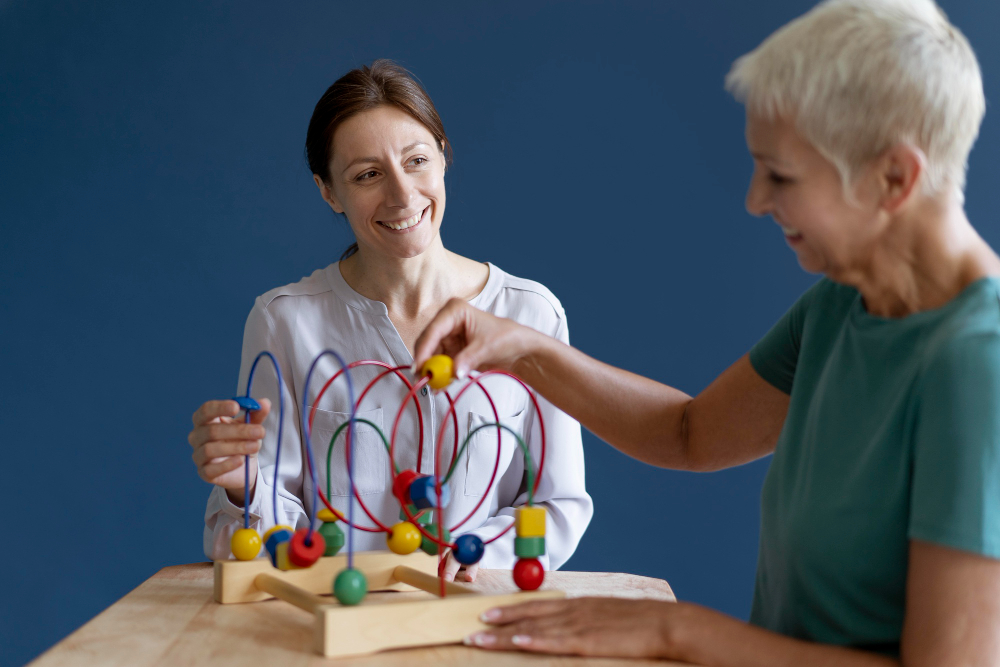Play therapy is an amazing way to help children grow and develop. It’s a special kind of therapy that uses play to support children’s psychosocial abilities. Here, we’ll dive deep into the ins and outs of this form of therapy, exploring its principles, techniques and materials used, and benefits.
Principles of Play Therapy
A set of fundamental principles serves as the foundation for play therapy practice and serves to direct the therapeutic process. One of these guiding ideas is the understanding that play is not only a typical and significant activity for children but also serves as their primary medium of expression and communication. Playing provides children with a secure environment that explores and motivates them to express their feelings, and this kind of therapy recognises its great value.
The unflinching faith in children’s innate ability to heal and develop is another key tenet of this type of therapy. The way therapists treat each kid is as an individual, completely embracing and honouring their inherent qualities and possibilities for personal growth. Children may learn vital skills like resilience, problem-solving aptitudes, and emotional control through the power of play.
Techniques and Materials Used in Play Therapy
Play therapists employ various techniques and materials to facilitate the therapeutic process and create a conducive environment for healing and growth. These techniques may include utilising a wide array of art supplies, puppets, sand trays, dolls, imaginative play materials, and an extensive range of therapeutic games. Therapists may empower children to freely express their feelings, reproduce real-life scenarios, and consider different perspectives by utilising play as a medium.
In the safe and encouraging environment provided by play therapy, children are able to externalise and gain a deeper understanding of their experiences through these interesting activities, develop problem-solving abilities, improve their social competence, and build their self-regulation skills.
Benefits of Play Therapy for Children
There are several advantages to play therapy for kids with emotional or behavioural issues. They may express their innermost feelings, create healthy coping methods, lessen worry, and boost their self-esteem with its help. Developing social skills and emotional intelligence, children can benefit from this type of therapy in managing their anxieties or dealing with loss and mental health issues. By engaging in this form of therapy, children can better empathise with others and develop emotional resilience while accessing critical skills to deal with a range of psychological challenges.
Children can explore and express their feelings in this type of therapy, as well as settle any unresolved problems in a secure and non-threatening atmosphere. This method also encourages children’s imagination and creativity, supporting their overall growth and development.
Conclusion
Play therapy is an effective therapeutic approach that takes into account the importance of play in a child’s emotional and cognitive growth. Play therapists assist children in expressing their ideas and feelings, developing coping mechanisms, and addressing psychological difficulties by establishing a secure and encouraging atmosphere. Children are given the tools they need to recover, grow, and flourish through this type of therapy, improving their overall well-being.





